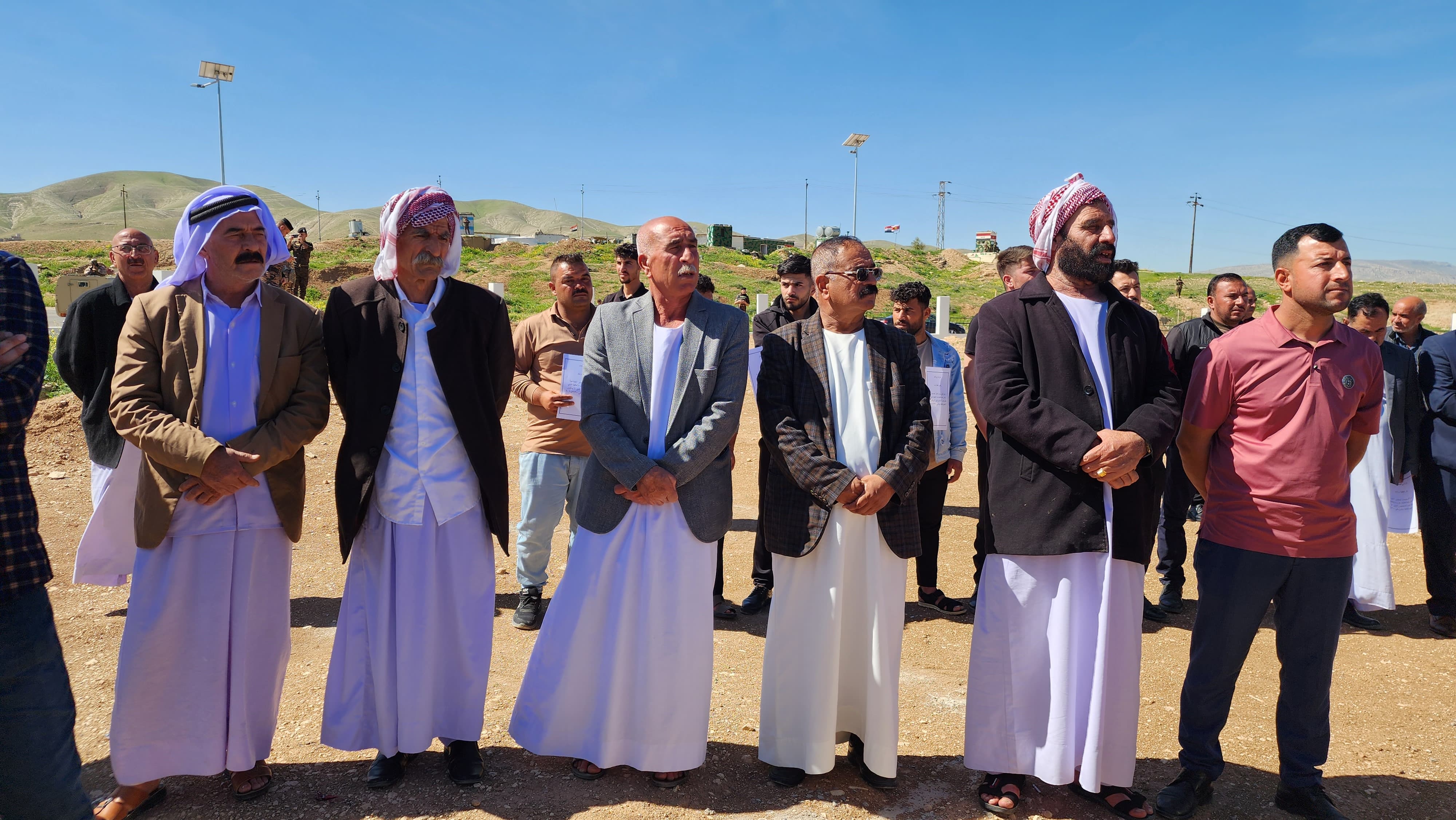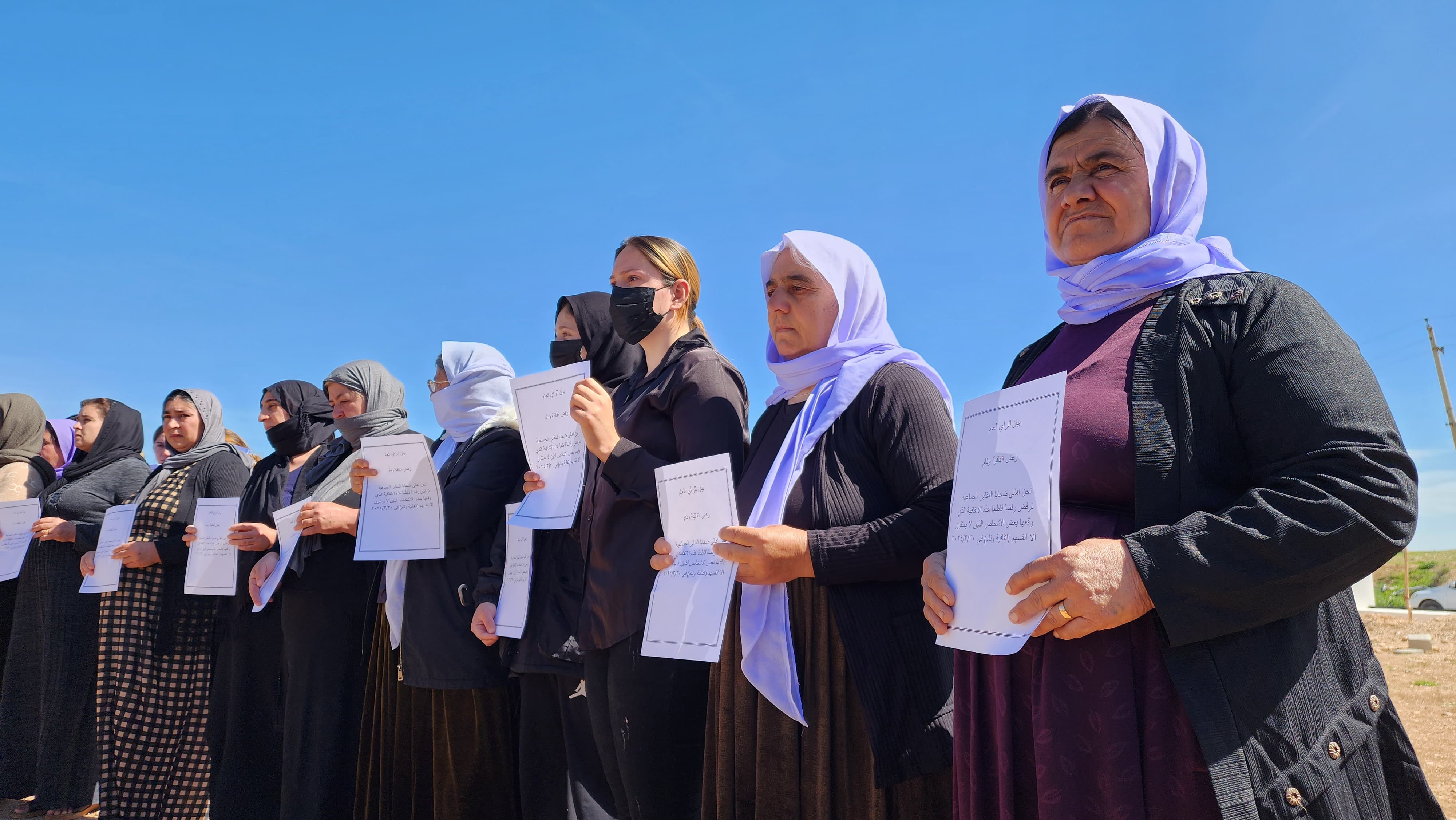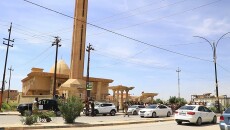A number of tribal leaders of the Ezidi (Yazidi) and Arab components in the Sinuny sub-district of Shingal (Sinjar) district of War-torn Nneveh Province signed a document of understanding under the name “Community Harmony Document” with the aim of consolidating peace and coexistence between the two communities, amid rejection from a section of the Ezidis.
The main points of the document prepared by the Tahrir Association for Development and ratified by the Governor of Nineveh, Abdul Qadir al-Dakhil, on March 30, are to boost harmony between the two components and rebuild the region.
The document calls for unifying the security file in the region and all security forces linked to one administration that obeys government orders and follows its security methodology, in addition to organizing effective campaigns to relieve the devastation and destruction that Shingal faced during the control of ISIS and military operations.
The document also called for accelerating the completion of compensation and entitlement transactions for the families of the martyrs and missing persons, in addition to implementing drinking water delivery projects and irrigation projects to confront the effects of climate change and develop the agricultural sector in the region.
Amid the atrocious attacks of the extremist militants of the Islamic State of Iraq and Syria ISIS, 1,293 Ezidis were killed, 68 shrines were destroyed and over 80 mass graves have been discovered.
IS reportedly used the women and girls as sex slaves and thousands are still missing. Tens of thousands of Ezidis are still living under tents in camps for the Internally Displaced Persons IDP, mainly in adjacent, northern province of Duhok due to lack of basic utilities at home, poverty, unemployment and instability.

A section of Ezidis gathered to express their refusal to sign the “Community Harmony Document,” Shingal, March 31, 2024. Laith Hussein
Ali Gabo, Assistant Governor of Nineveh for Organizations and Displaced Persons Affairs, told KirkukNow, “This understanding came as a result of several activities organized by the Tahrir Association for Development with the Ezidi and Arab communities in the Sinuny, the aim of which is to restore peace and coexistence between the two components and avoid the occurrence of conflicts and confrontations between them.”
Gabo, who is from the Ezidi religious community, pointed out that "the slogan of the understanding document was: No to violence, hatred and resentment between the Arabs and Ezidis of Shingal."
"Everyone agreed in these events on the necessity of bringing those collaborated with Daesh (ISIS) to justice and allow those who had no ties to them to return home," he added.
On Sunday, March 31, a section of Ezidis at a gathering by the families of genocide victims announced their refusal to sign the document.
The protesters stressed in a press conference that they would not accept signing the document "unless those who cooperated with ISIS militants in 2014 are tried and punished."
Ezidism is an old Middle Eastern monotheistic ethnic religion and is based on belief in one God who created the world and entrusted it into the care of seven Holy Beings, known as Angels. The outstanding among these angels is Melek Taus (Peacock the King) who is the leader and has authority over the world.
Most Ezidis speak Kurmanji, one of the two main Kurdish dialects, however, most Ezidis consider Ezidism a religious rather than an ethnic identity.






